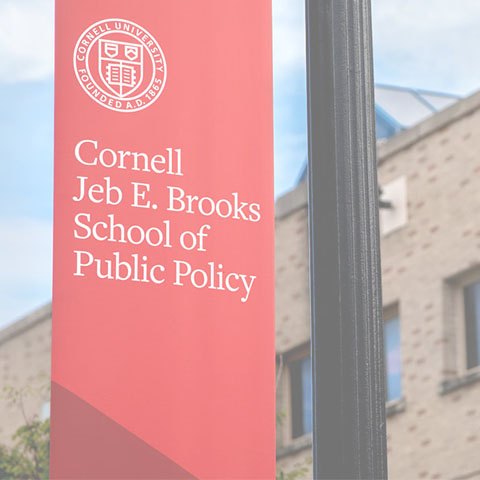Brooks School Student Services Team
Engage with our Brooks School Student Services Team
The Cornell Jeb E. Brooks School of Public Policy takes a team approach to undergraduate advising. Undergraduate students in the Brooks School have access to a team of academic advising staff in the Office of Admissions, Student Services and Career Management. Students are also assigned a faculty mentor during their first semester.
Professional staff advisors in the Brooks Office of Admissions, Student Services and Career Management are available to help you with specific advising questions including academic policies and procedures, credit requirements, degree requirements, course sequencing, petitions, transfer credit, study abroad, career planning, minor selection, exploring change of major, and personal counseling. Professional staff advisors will also serve as liaisons with other university offices and provide referral services to offices such as Student Disability Services, the Learning Strategies Center, Cornell Health, etc.
Meet the Team

Christie Avgar
Assistant Dean of Enrollment and Student Services


Jen Wright
Assistant Director of Undergraduate Advising and Student Services

Michelle Gardner
Associate Director of Career Management

Tracey Thompson
Registrar

Emma Broz
Assistant Registrar

Kim Fellows
Assistant Registrar

Becca Campbell
Student Services Coordinator
Advising
Brooks Faculty Mentors (listed as faculty advisor in student center) are available to mentor you on your interests in the field of public policy and broader career directions, within the context of the Brooks School curriculum. This includes offering you career development advice within the scope of the mentor’s networks and expertise. Mentors can counsel you on opportunities to engage within and outside of the Brooks School across our programming. Faculty mentors will pull from their research expertise and network to inform you of current areas of research and opportunities in the field, particularly with regards to independent study and honors programming.
You should plan to meet with your faculty mentor at least once per semester to discuss your academic interests and plans for the future. You can find your faculty mentor’s name in Student Center. Faculty mentors are available to help you, so feel free to email your faculty mentor to learn when their office hours are or to request an appointment.
If you were not assigned a faculty mentor or if you would like to request a mentor change, contact Brooks-studentservices@cornell.edu. If you know who you would like to have as a new faculty mentor, check with that person first to make sure they agree, and forward their approval to Brooks-studentservices@cornell.edu.
Questions?
For Questions Contact:
Brooks-studentservices@cornell.edu
Registrar Phone: (607) 255-2235
Advising Phone: (607) 254-3451
